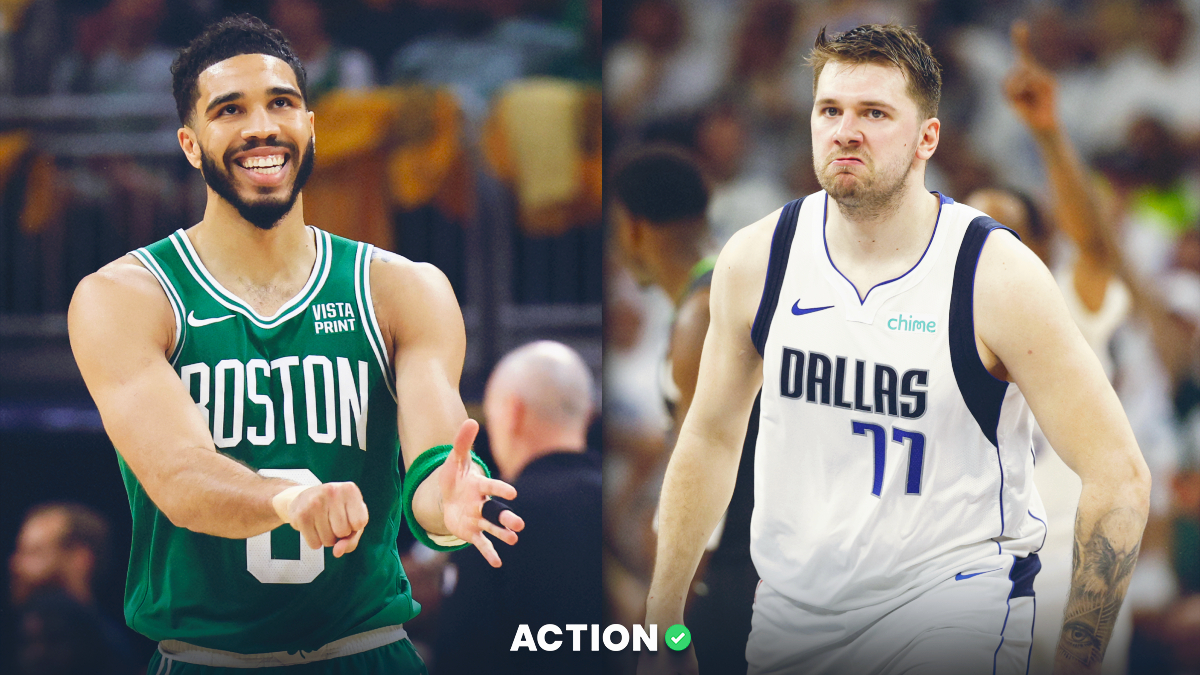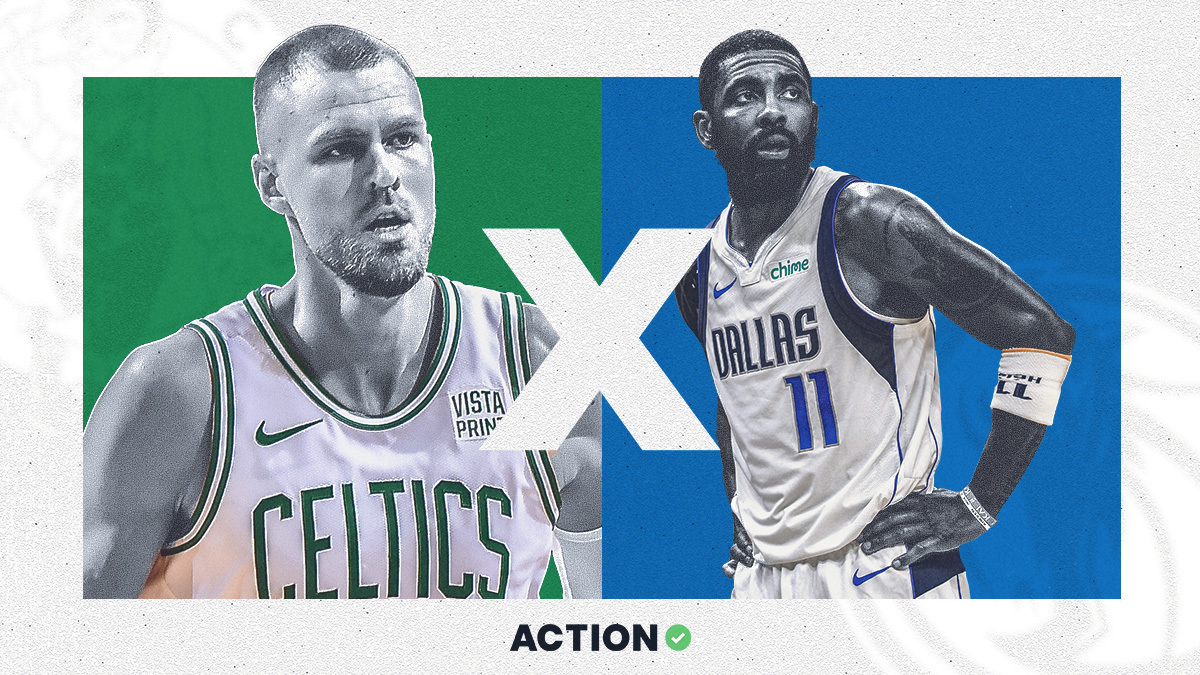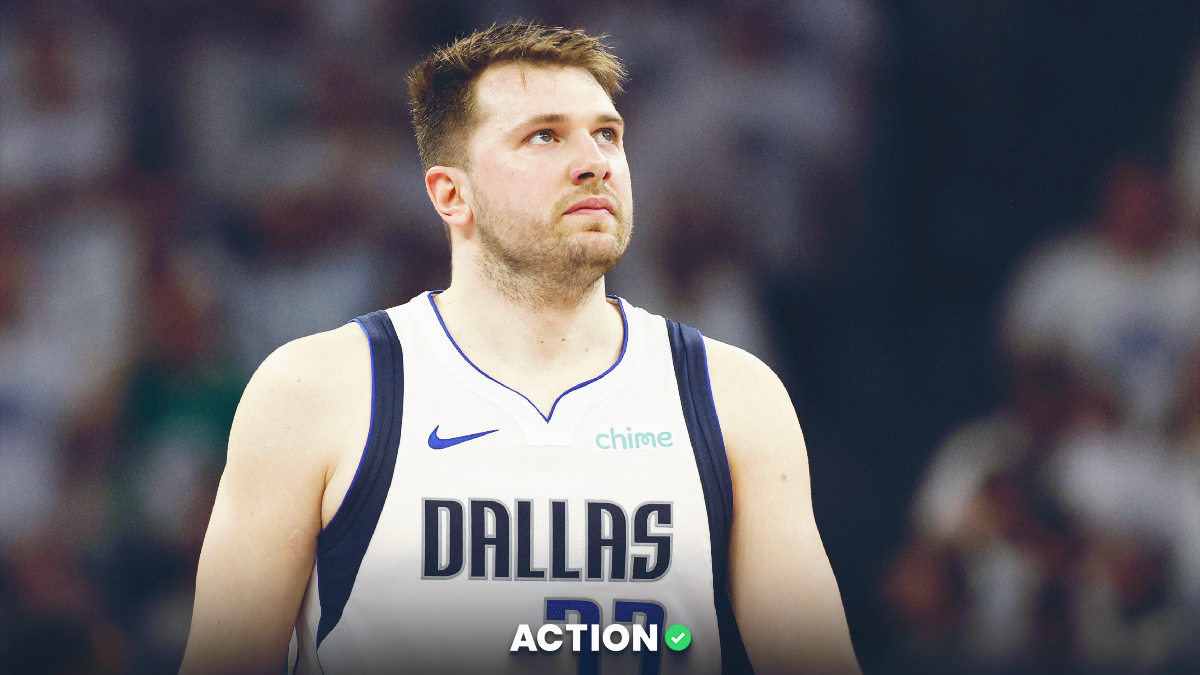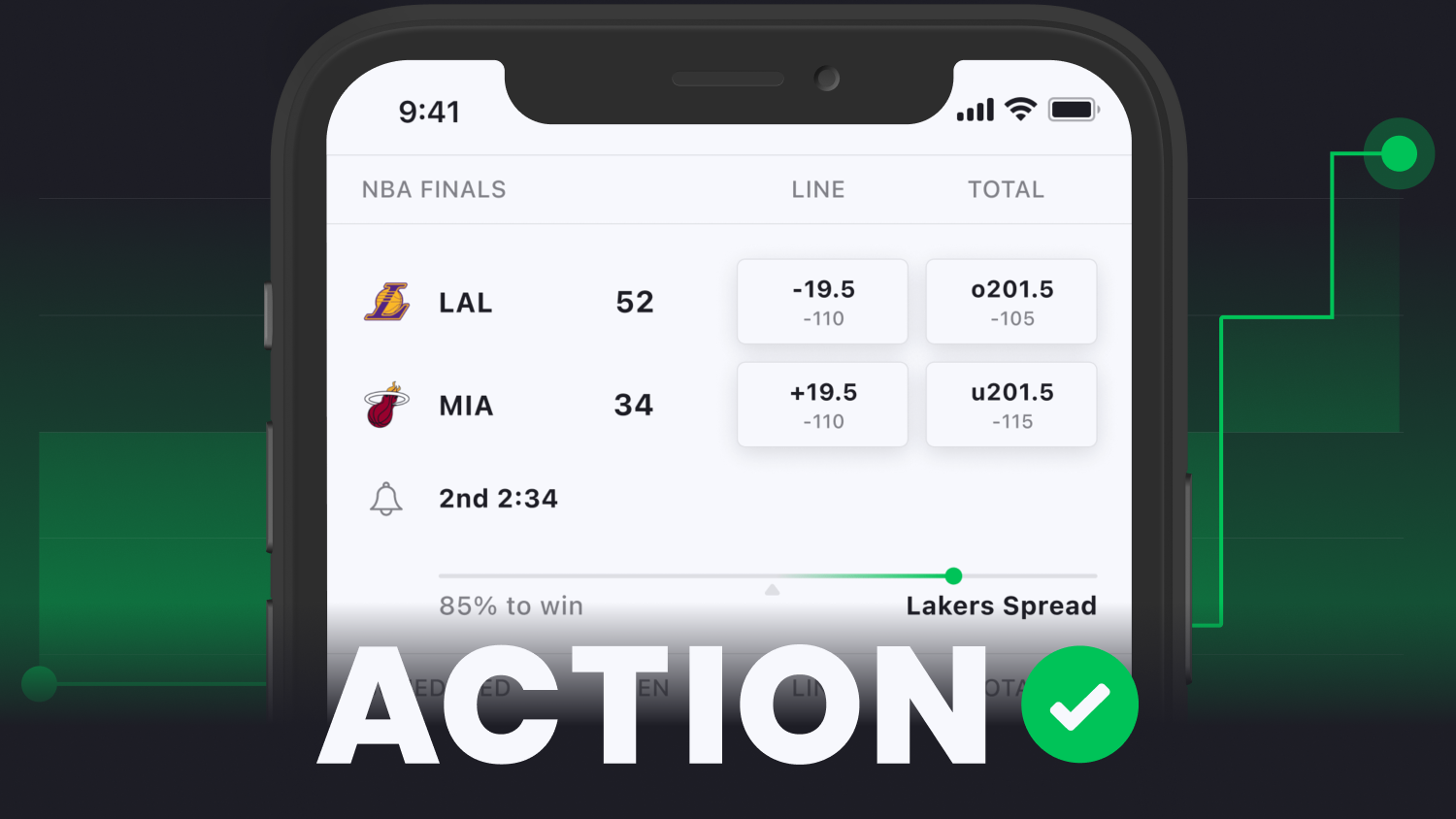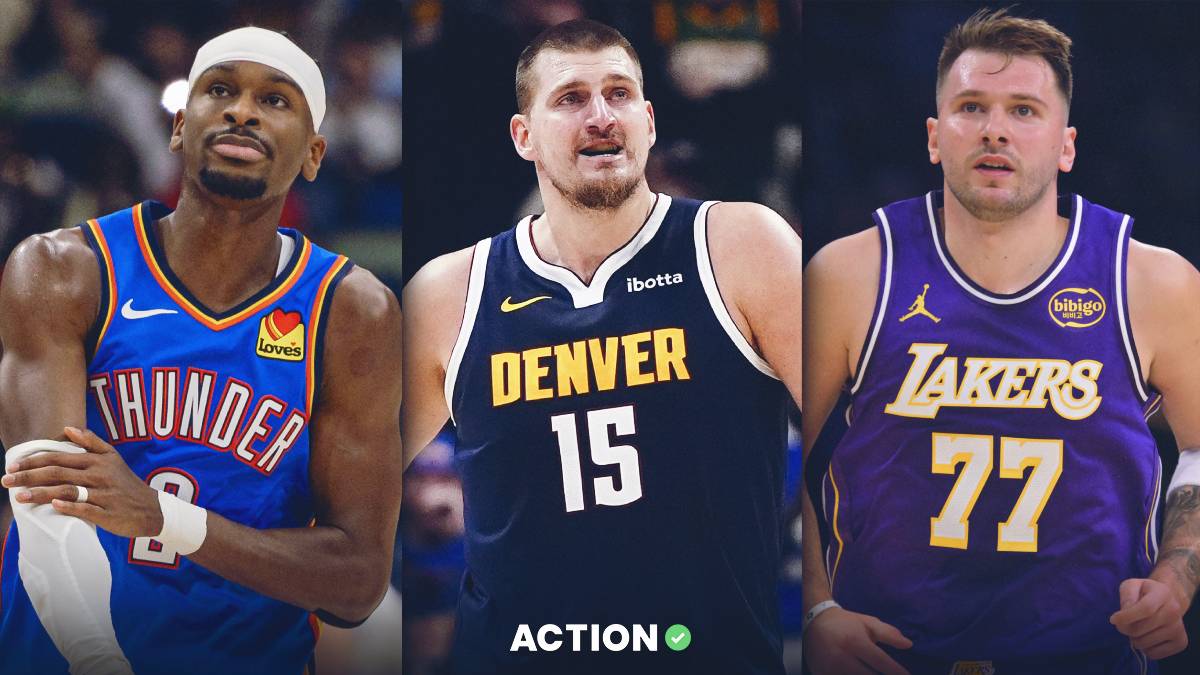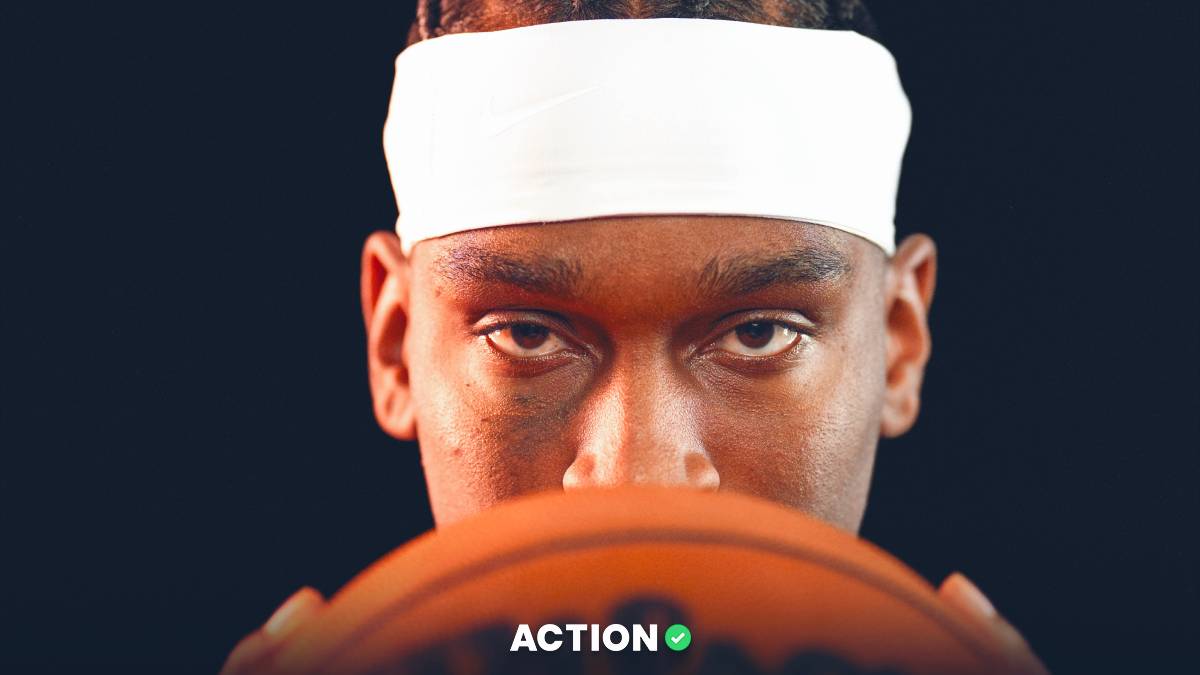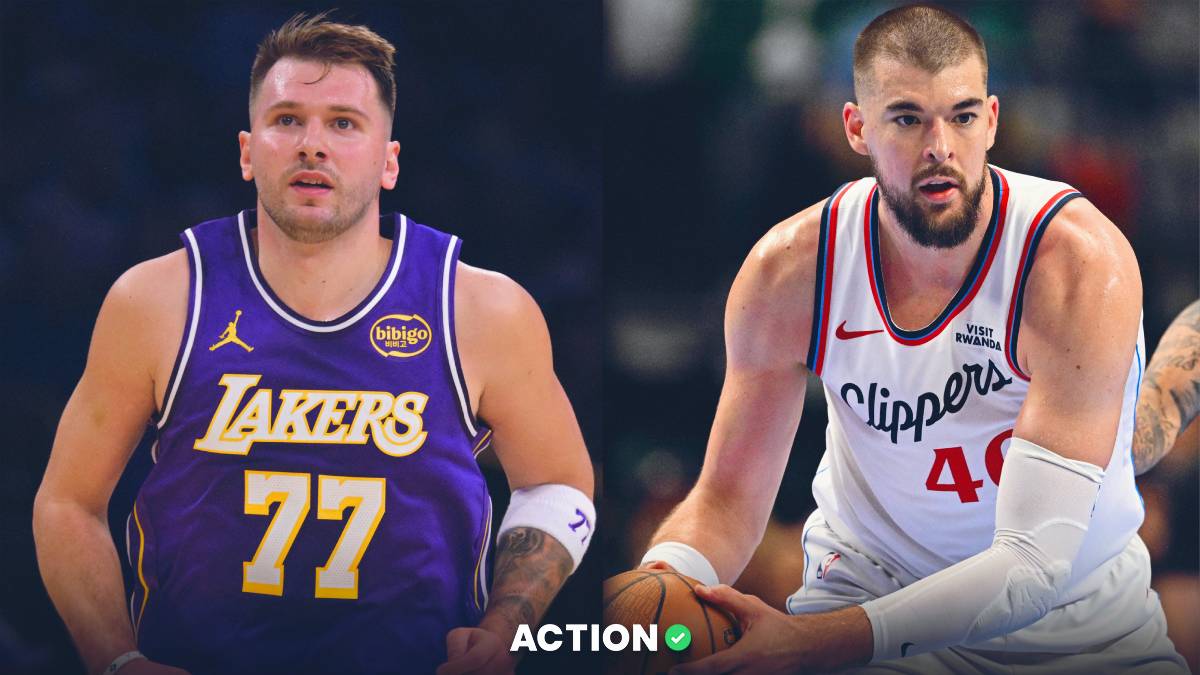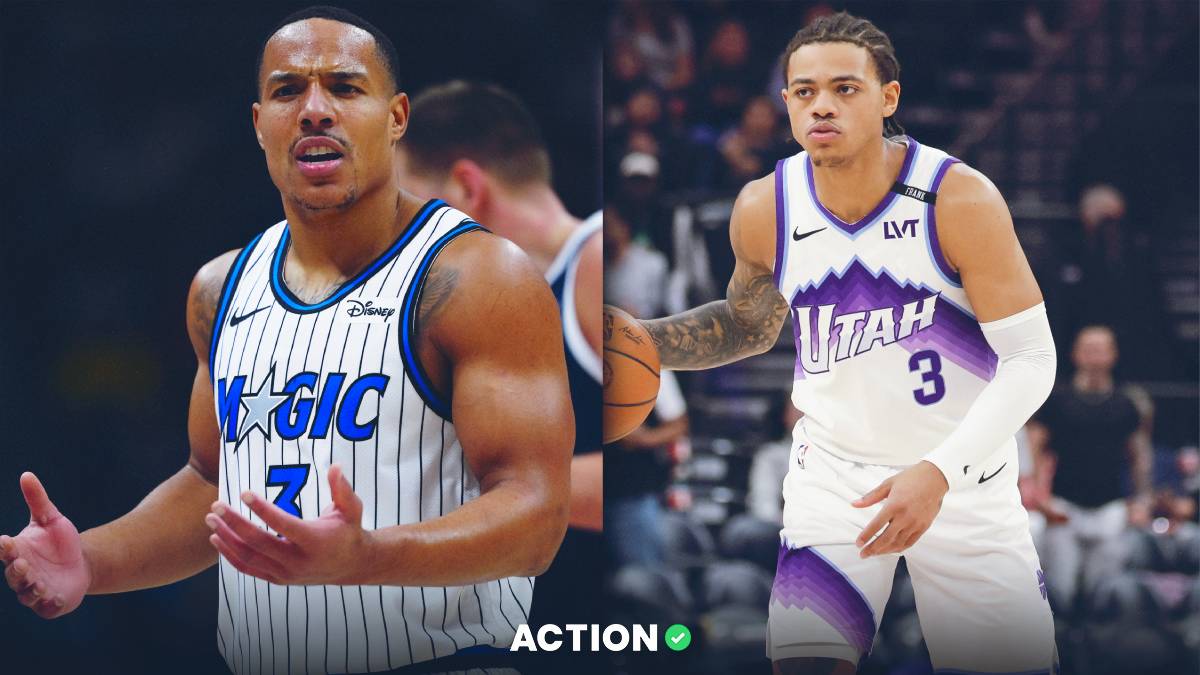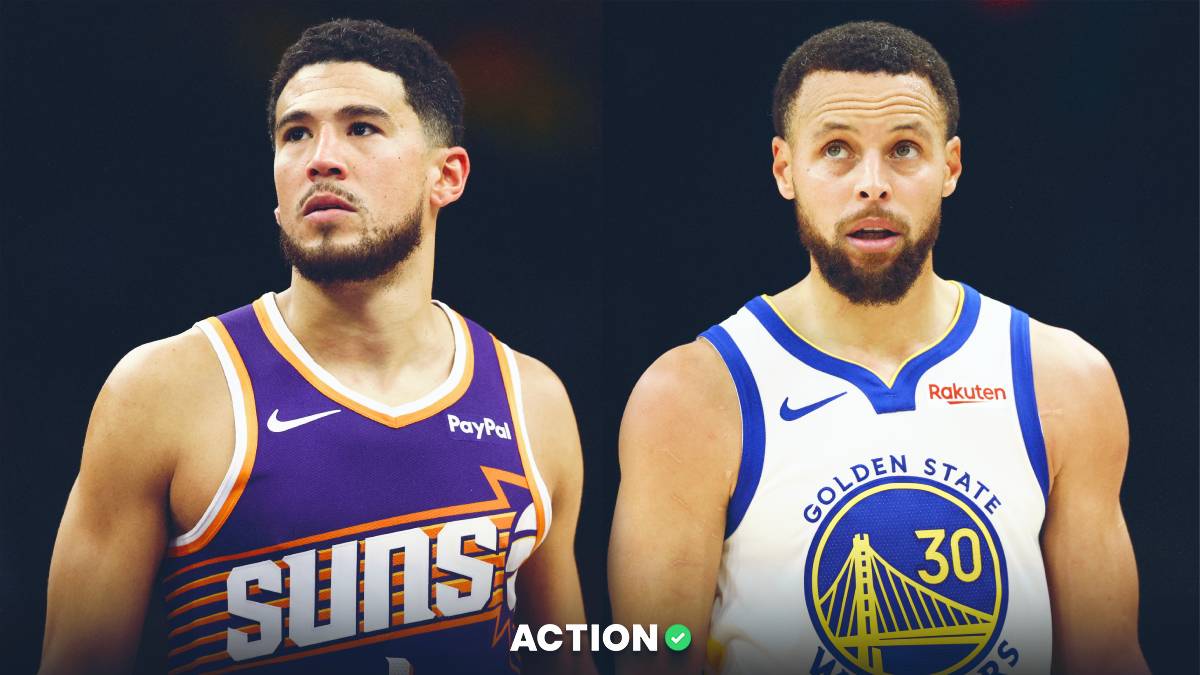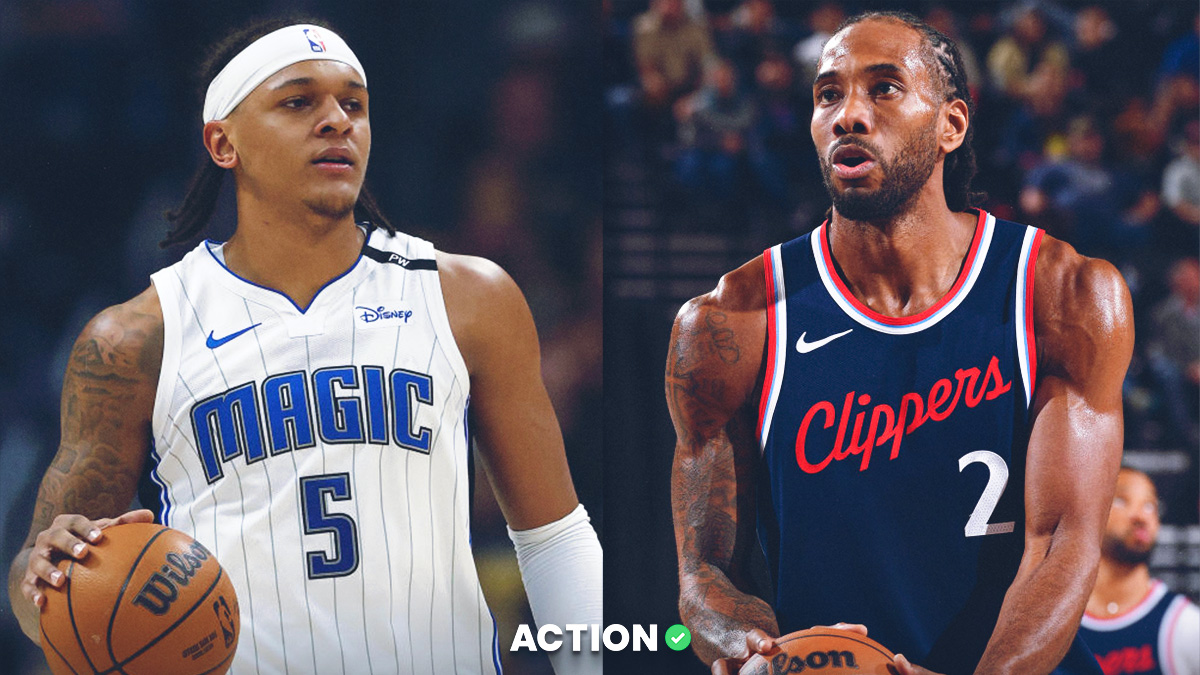We have finally made it to the NBA Finals, as the Boston Celtics and Dallas Mavericks get set to tip off Game 1 on Thursday night.
This matchup has so many wrinkles and unanswered questions. Here are the eight big questions I'm keying in on for this series, and the four series bets I'm already targeting.
1. How healthy is Kristaps Porziņģis?
Porziņģis' health is the biggest factor in this series. He brings a level of shooting to the center position that Boston doesn't have otherwise, and prevents other teams from doubling up their guards in the pick and roll. His addition unlocked something for Boston on both ends, and it's a big part of the reason why the Celtics have looked so dominant.
Without Porziņģis in this series, Dallas will dare Al Horford and Luke Kornet to make shots so they can keep their big men in the paint — and I'm not sure that duo can hit enough to punish Dallas. With Porziņģis, that plan becomes more difficult, and will force the Mavs into potentially leaving better shooters open. Porziņģis also makes a huge difference on how teams shoot at the rim, and without him, Dallas may find the scoring much easier.
Without Porziņģis, Dallas should be favored in this series even without home court. The rest of my article will assume he is at full strength, but when it comes time to bet, that uncertainty is something that has to be taken into account.
2. How wide is the gap in quality between these two teams?
This singular question is the reason why you will see more varied takes on what will happen in this series than almost any other.
By net rating or SRS, these two teams are incredibly far apart. If you go by Basketball Reference's SRS measure (an easy tool that gives a base value for how good a team is), the gap between these two teams is greater than all but one NBA Finals in the last 20 years. When teams with this big of a gap have met up in the playoffs, the line had never been shorter than -300, and in only two other instances was the favorite shorter than -750. In fact, the average line for series with this sort of gap was -4000. But, books have put Boston around -220, shorter than any other.
If you look at historical odds, typically when the odds are around -220, it means the difference in SRS quality between the teams is 1.75, not 8.45. Sportsbooks are definitively telling us that Dallas and Boston are much closer in talent than we would think.
How could this be the case? It could just be a hedge on the Porziņģis injury, or trying to attract more action on a specific team. I think, though, there is actually a decent statistical argument here based off regular-season resume. If you just looked at what the net rating of Boston was when only their playoff rotation players were on the floor during the regular season, it was +10.9. If you did the same for Dallas, it's +12.5. Dallas remade its team so much at the trade deadline that it's possible that the quality of these two teams is closer to that of two juggernauts than a lopsided battle.
Putting this another way: Boston's bench killed teams, often with guys who won't sniff the playoffs. If their bench had been bad, and Boston had won 57 games with a net rating closer to that of Denver, would we think the gap was so wide? Or if Dallas had its current team all season long and had finished with a +10 net rating and the No. 1 seed, would they be as big favorites? These hypotheticals are hard to answer, but begin to address that the gap may not be as wide as we think.
3. Can a team win a title with as drastic of a midseason overhaul as the Mavericks had?
This one actually seems to have an answer: yes.
The 2019 Toronto Raptors are a good example here, as they acquired Marc Gasol and Serge Ibaka midseason to improve their team dramatically. Other teams — ranging from the 1989 Pistons (Adrian Dantley for Mark Aguirre), 2004 Pistons (Rasheed Wallace midseason), 2008 Lakers (acquired Pau Gasol, Trevor Ariza midseason, lost title), 1995 Rockets (Clyde Drexler midseason) — all had massive postseason success after making a big midseason trade.
The big difference between Dallas and most of the other teams is they were already good when they made the trade, while the Mavs were not, and had such a drastic turnaround. Again, it comes down to the same question: How good is Dallas really with this new fit, since the data seems to imply they are pretty good?
4. Will Jason Kidd coach well and will Tim Hardaway Jr. play?
Jason Kidd has a mixed bag of a coaching record, and this will be a big test for him. He has experimented all season long trying to find the right combination of talent and fit on the floor. On March 1, the last time Boston and Dallas played, Kidd started Dereck Lively II and Josh Green, while Daniel Gafford and Derrick Jones Jr. combined for only 12 minutes.
A week later, on March 7, Kidd decided to start his 32nd different starting lineup of the season, starting their current starting five of Gafford, P.J. Washington, Jones, Luka Dončić and Kyrie Irving. All of a sudden, the pieces fit. That starting lineup went 15-1 the rest of the way and has now gone 12-5 in the playoffs. I'm not sure Kidd still has the best grasp overall of strategy, but by stumbling through and trying new things it seemed as if he found the right combination that worked.
Meanwhile, my Sixth Man of the Year pick Tim Hardaway Jr. has seen his minutes go down as the playoffs have gone along, and he did not play in the last three games of the Western Conference Finals. Dallas' net rating this playoffs is +5.3. With Hardaway on the floor, it's -13.8, while they are +9.1 when he is off.
Hardaway was needed for offense earlier in the season, but with the Mavs team as currently constructed, he brings nothing to the team. He isn't good enough offensively to take away possessions from the other players, and his defense is lacking. His injury in Round 1, and further benching this playoffs, has made a huge difference for Dallas. I'm curious to see if Kidd keeps him on the bench.
Maximize your NBA Finals action with our BetMGM bonus code.
5. How good is Luka Dončić?
In the OKC series, the Thunder really made Dončić's life difficult. He wasn't that efficient and wasn't particularly healthy. Dallas' support players carried a heavier burden on offense, as OKC left them open, and they ultimately made them pay.
Against Minnesota, Dončić was a killer. He averaged 32 points per game on 62% true shooting while averaging eight assists. Kobe Bryant is the only other NBA player to average 30 points on 62% TS and at least seven assists per game for an entire conference finals.
Is there any way to slow Dončić down? The Wolves switched up their look Game 4 and Dončić passed up shots on a subpar night. He clearly studied the tape, because the same thing did not work Game 5, when he torched them. The same thing isn't going to work more than once, and Dončić will figure it out as the series goes on.
This is a big part of the reason Dallas has won every Game 2 in the playoffs, and why that's a good option for this series as well. Dončić is now fully rested, and there isn't anyone on Boston with the true size or speed to stop his combination of passing and scoring. Throughout his career, he has consistently been a playoff killer. Now, fully healthy with the right support players around him, he is at his apex to this point.
On a related note, the correlation between Dallas winning and Dončić winning Finals MVP is 100%. Dončić is by far the best player, is widely considered so and always puts up numbers. There is no way it could be someone else if Dallas wins.
6. Can Dallas slow down Boston's offense?
Boston and OKC's offenses were similar during the regular season, as they finished second and third in offensive rating and first and third in effective field goal percentage. The biggest differences between their offenses? OKC took more mid-range shots and had more looks at the rim, while Boston took 34% of its shots from non-corner 3s.
During these playoffs, the Mavs have dared teams weaker 3-point shooters to beat them and made it very difficult for teams to score at the rim. When it comes to the 3-point line, they have left people more open from the corners than from above the break.
During the regular season, once they swapped to their current starting five, the Mavs were second in the NBA defensively. It wasn't exactly a murderer's row, but they have kept it up in the playoffs against good offenses.
This is the big unknown of the series for me: Can Dallas force Boston into shots it doesn't want from players it doesn't want shooting? Will Horford and Jrue Holiday hit enough 3s to punish them? If they are able to have success against them like they did against OKC, Boston is in for a long series. If the Celtics can score efficiently, though, the Mavs probably can't win this series.
7. Who would win MVP if the Celtics win?
Almost always, the best player on a team wins Finals MVP. Here are the potential counter-examples over the last 40 years:
- 2015: Andre Iguodala (16.3 PPG, second on team) wins over Stephen Curry (26 PPG, first). Iguodala gets a lot of credit for "slowing down" LeBron James.
- 2014: Kawhi Leonard (17.8 PPG, second) wins Finals MVP, also guarded James. The Spurs didn't have a clear best player this season.
- 2008: Paul Pierce (21.8 PPG, first) wins over Garnett (18.2 PPG, third). Garnett was the best player and the defensive lynch pin, but Pierce was the Boston lifer and top scorer.
- 2007: Tony Parker (24.5 PPG, first) wins over Tim Duncan (18.3 PPG, second). It was a sweep and Parker led in scoring, but similar to Garnett, voters didn't reward Duncan for defense/overall contribution.
- 2004: Chauncey Billups (21 PPG, second) wins Finals MVP. Top four were all equally valuable.
- 1989, 1990: Joe Dumars wins in 1989, Isiah Thomas wins in 1990. Both led team in scoring that series.
- 1988: James Worthy (22 PPG, first) wins over Magic Johnson (21.1 PPG, second). Worthy was huge in Game 7 and Johnson won the year before.
There are different reasons for the eight examples above, but it often comes down to big shots hit, the leading scorer and potential defensive impact.
Jayson Tatum has been the Celtics' best player over the last five seasons. He is currently having a mediocre playoffs, not scoring particularly efficiently and only averaging 26 PPG. His play has created a situation in which it hasn't been clear who has been the best player in the playoffs for Boston, similar to the 2014 Spurs or 2004 Pistons.
If Boston wins and Tatum plays around the same level, there is a good chance Finals MVP ends up with another player. The above seems to suggest it would be a high scorer who may have some level of defensive responsibility, especially when it comes to guarding the other team's best player.
Jaylen Brown will likely start on Dončić, shoots a ton and is seemingly always thirsty to score. He is the second-most likely player to lead Boston in scoring, has been more efficient in the playoffs and just won ECF MVP. While Tatum should be Boston's favorite, Brown should be much closer in odds for Finals MVP.
8. Have we learned anything about Boston as a playoff team so far?
Boston has played three teams missing their best player and gone 12-2. Their path to the NBA Finals has been almost easier than anyone else's.
The three biggest questions for Boston was whether Joe Mazzulla could make adjustments, their crunch-time play and if Tatum could go toe to toe with another team's best player.
While we don't have clear answers to those questions, the Celtics did perform better in the clutch against Indiana, closing out three of those games with shutdown defensive performances. Mazzulla didn't have to make huge adjustments, but he did unleash Oshae Brissett to mix things up, and his early challenge Game 1 against the Pacers was bold. I'm not sure the Celtics have definitively answered those questions, but the signs are there that this team may be different.

Series Best Bets
Luka Dončić Finals MVP: +205, DraftKings, 2u
If we knew Porziņģis was 100% healthy, this might be a pass. But there is probably a 20% chance he can't go the whole way or doesn't look right, and if that's the case Dallas has a massive advantage here.
Even if Porziņģis is 100%, I think Dallas still has at least a 45% chance to win the series. Since 2000, when teams have been separated by an SRS of at least six but the odds for the favorite have been shorter than -600, the underdog has won 3-of-7 series. When the books are telling us the underdog has a better chance than we would think, we should be paying attention. Dallas has ways to score and options to defend and their team quality post-trade deadline implies this team is legitimately really good. They also have the best player in the series.
When we look at the Mavs and Celtics, we see a team that dominated the regular season, and one that went 50-32 and finished as the No. 5 seed in the West. But I think Dallas is way better than that and has been since March 7. If we instead thought about Dallas as a 58-win team with the MVP (which Dončić has played like since March 7), then this line would be closer and the Mavs would be a trendy pick.
I think this series is close, Dončić is a killer and will take the +205 here.
Jaylen Brown Finals MVP: +650, DraftKings, .2u
I think Brown wins at least 1/3 of the time that Boston wins the title, with the similar scoring burden between him and Tatum. At +650, these odds imply a massive difference between Tatum and Brown, which just hasn't been there these playoffs. This is the counter bet to the Mavericks winning, and it's value that is just too long.
Over 2.5 Road Wins [Finals]: +135, DraftKings, .25u (You can find this under Team Futures –> Playoff Specials)
Up until 2014, this happened only 39% of the time. Then the NBA switched to a 2-2-1-1-1 format for the finals, and it has happened in seven of the last 10 years. In close series, the road team usually takes one of the first two, and its often tied up 2-2 heading back home. I wouldn't be this lower than +120, but I think it's a fun sprinkle with a lot of outs.
Series Exact Order: G1 BOS, G2 DAL, G3 DAL, G4 BOS, G5 BOS, G6 DAL, G7 DAL: +10000, .05u, FanDuel/BetMGM
This is a degenerate bet, but it's always fun to grab an exact outcome. I like the narrative here too: Boston wins Game 1, Dallas takes Game 2 — which has been what happened for both teams. The Celtics panic and rebound after Game 4, the Mavs blows them out Game 6 at home, followed by a down-to-the-wire finale in Game 7. Just a fun side outcome to root for!


